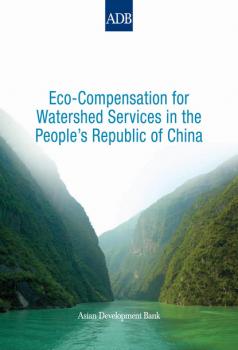Qingfeng Zhang
Список книг автора Qingfeng ZhangEnvironmentally Sustainable Development in the People's Republic of China
The rapid pace of growth, the sectoral structure of the economy, the sources of energy used, and increased urbanization are four large-scale drivers behind the complex environmental agenda of the People's Republic of China (PRC). To improve the quality of the ambient environment, the recently released Macro Strategic Research Report on the PRC's Environment recognized the need for changing the momentum of the four driving forces, and included visions throughout 2050 for long-term environmentally sustainable development. Revisiting these visions for the future, this paper examines the key elements that the government needs to keep in mind in its efforts toward environmentally sustainable development, and articulates the role that the Asian Development Bank can play in contributing to the government's environmental agenda in the next decade.
Toward an Environmentally Sustainable Future
This publication presents the results of a 2-year effort to update environmental assessment in the People's Republic of China (PRC). The research was a collaborative effort involving the Asian Development Bank (ADB), the Ministry of Environmental Protection, the National Development and Reform Commission, and numerous other technical and research institutions in the PRC. Based on this research and extensive consultations, ADB proposes a wide range of programs and policies that will help improve environmental quality despite new and emerging sources of pollution and challenges to natural resources management. Inclusive growth and a green economy are the government's guiding principles for its development agenda under the 12th Five-Year Plan and beyond to 2020. To support these principles, the PRC needs to restructure its economic and fiscal systems to reflect environmental externality, expand the use of market-based instruments to control pollution, and introduce and implement legal reforms to clarify responsibility and promote cooperation.
Rural Biomass Energy Book 2020
The developing world is looking for effective, creative ideas for upscaling clean, renewable energy. No place will gain more socially, economically, and environmentally from increased access to clean, reliable energy than poor, rural areas. Biomass energy, produced from animal and crop wastes, is a sensible renewable energy option for rural areas and it can be cost-effective at community and industry scales if guided effectively by governments. This publication explores the potential of biomass energy to close the urban–rural energy gap, raise farmer incomes, and mend the environment in the People's Republic of China (PRC). Its findings are instructive for other developing and medium-income countries exploring energy-for-all strategies. The report examines the promises and limitations of leading biomass energy technologies and resources for various distribution scales, including but not limited to household biogas digesters. The information is based on lessons learned and experiences from the Asian Development Bank–financed Efficient Utilization of Agricultural Wastes Project in the PRC, as well as findings and conclusions from a technical assistance grant to assist the government draft a national strategy for developing rural biomass energy.
Eco-Compensation for Watershed Services in the People's Republic of China
The People's Republic of China (PRC) is seeking new approaches to improve water management outcomes in the face of a growing water crisis caused by ongoing pollution control and watershed management challenges. This has included numerous experiments in «eco-compensation» (which shares characteristics with payments for ecological services). This paper details progress in creating a national eco-compensation ordinance and discusses the ongoing institutional challenges in its effective development. Water is possibly the single most-pressing resource bottleneck of economic growth for the PRC over the medium term. As such, the degree to which such initiatives are ultimately successful is not only critical for the PRC but also has major ramifications for global food, fuel, and commodity markets and production chains.
An Eco-Compensation Policy Framework for the People's Republic of China
Economic growth has multiplied the environmental challenges faced by the People's Republic of China but has also created opportunities, by increasing available funding for environmental management and conservation. At the nexus of these countervailing trends, policy makers have been experimenting with new approaches to environmental management under the broad heading of «eco-compensation». Many of these are market-based, particularly payments for ecosystem services; an emerging policy debate is regarding the extent to which beneficiaries should pay, and the providers should be compensated, for the provision of natural resources and environmental services to promote sustainable, balanced growth. This paper synthesizes the findings of the International Conference on Payments for Ecological Services convened in Ningxia Hui Autonomous Region in September 2009 to support eco-compensation programs in the country.




